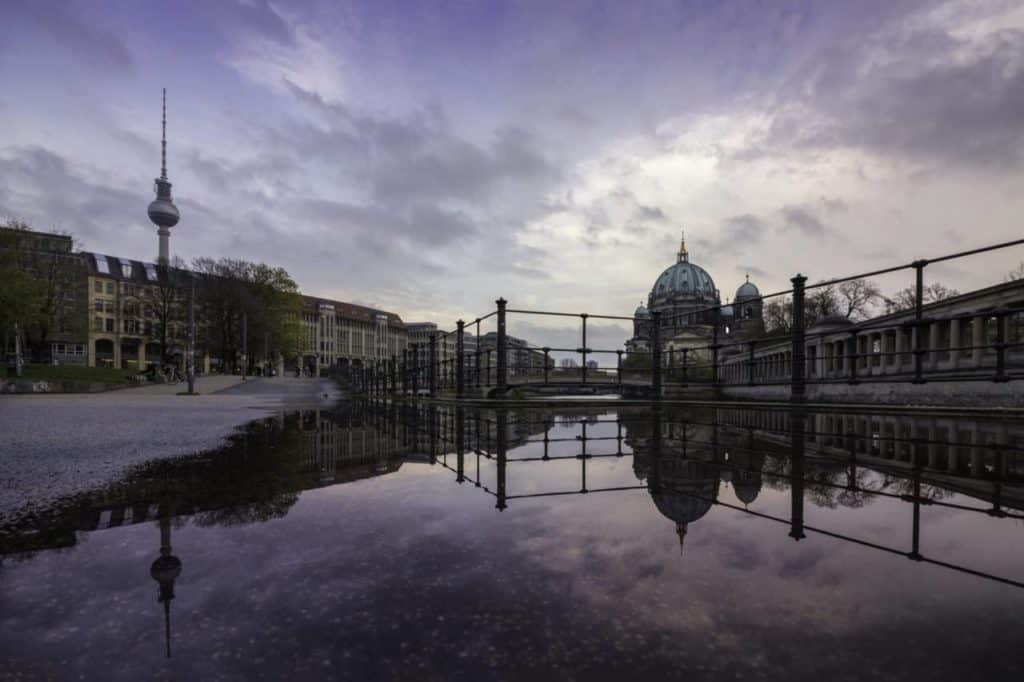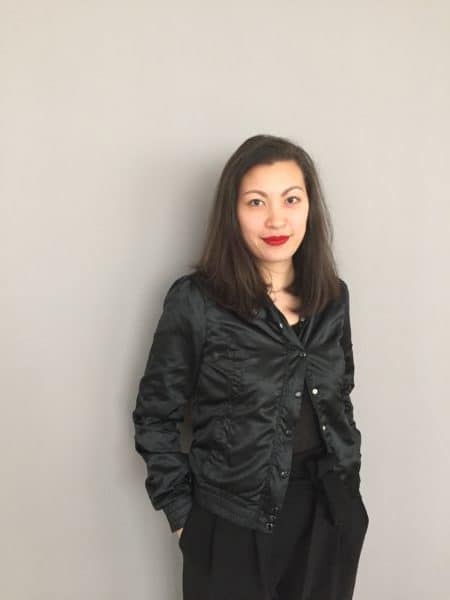In the second interview of our Why Berlin series, we chat with professional trend scout, Karin Ose.
In this article you’ll learn…
What do you do in the fashion industry?
My official job description is trend scout at Zalando. Zalando is a big e-commerce channel. Together with my team members, we do research on upcoming trends. We work to predict trends about one year in advance. So for example, we are now working on SS17, we do the research, structure and conceptualize it and come up with trend topics, that we then brief to the buyers and this information also gets fed to marketing later on.
How long have you lived in Berlin? What made you decide to move there?
I moved here in September 2013. So I’ve been here two and a half years. I moved here from Hamburg to work for Zalando. Berlin really felt like the only option within Germany because it’s international and has so much to offer.
I really love it here. I feel, for the first time, like I don’t want to move somewhere else. I love the city. It’s very different from other big cities, it’s not as hectic. It’s green and nice.
What first drew you to work in fashion retail?
Fashion has been something I always had a passion for. My Mum worked in fashion in Korea and my parents had a baby boutique when I was little. I remember when I was younger I would always watch documentaries about models and designers. I wasn’t necessarily into the fashion but the creativity in general. Growing up as a teenager, fashion became quite relevant. I wasn’t planning to work in fashion. I got my degree in Economics and Business Administration which is quite conservative, but then I did an internship at a Fashion Retailer in Hamburg. I wanted to work within a context that I’m interested in and it doesn’t feel like a struggle to put in the hours. I really wanted to identify with my job. So that was it.
What are some of your favorite trends?
Personally, what I really liked was the sneaker trend. It was so comfortable. Especially in Berlin, the style is more effortless and it’s more about being underdressed than overdressed. I don’t think it’s gonna go away anytime soon, because this is such a diverse commodity group, so there’s many options to go more minimal or more sporty, colourful or subtle. Also, sneakers are part of a bigger movement- the body conscious/athleisure trend. My generation and younger ones are generally more focused on being healthier. This is a cultural shift more than just a fashion trend. Sneakers are a great commodity.
Also, I never was into wearing trousers. I don’t own a single pair of denim, I just had one pair of black pants. This whole culottes look is really amazing though– and it’s something that influenced me personally. So this is probably my favorite personal trend.
I’m not into it as a consumer, but aesthetically, I really love the revival of the 70’s as well. It’s feminine and colorful. The comeback of the flare was also amazing. I remember that came up when I was 12 and 13. What I’ve learned is that everything in fashion comes back at a certain point- everything.
Where do you draw inspiration from?
I just came back from Seoul for vacation. They adapt things really quickly and a lot of trends are seen there before they move over to Europe. It was really interesting to observe people on the street to see what they’re wearing. My main influence is observing people on the street, especially through travels and then — it’s stereotypical, I know– but I love the arts and creative things. I’m always watching movies and going to exhibitions and trying to have an open mind to absorb input.
What trends do you predict will rise in popularity on the Berlin fashion scene?
The thing that has been quite visible has been Yeezy and the whole natural/neutral colour palette, washed out and the teenage boys have been wearing oversized silhouettes and bomber jackets. Berlin is always earlier than the rest of Germany.
I also like this bohemian/country trend for guys. This whole workwear and denim mixed with ethnic influences is quite nice because it’s quite daring.
Who has been instrumental in the shaping of Berlin’s recent fashion trends?
It’s not very locally driven here. Looking at the German celebrities– there isn’t one person who is that influential. It’s more driven by international influencers– so someone like Kanye is more of an influence, or Rihanna especially for younger crowd.
Who are your favourite German designers? We all know Hugo Boss, Jil Sander, and Escada; are there any up and coming designers that should be on our radar?
First of all, don’t forget Karl Lagerfeld, I’ve always loved him since I was little, he’s an amazing personality. He’s been so influential and a constant figure in fashion for so long.
Bobby Kolade: he just showed his second collection or so. It was super colorful and ethnic. I usually follow the NY, Paris, Milan fashion weeks more than Berlin, but this one designer really stood out to me.
Hien Le is another designer I like. It’s really wearable and quite clean. He also comes across as a really nice guy.
Until recently, Berlin has not been ranked among the world’s fashion capitals. How has Berlin increased its presence in the industry and how will it continue to influence international style?
It’s becoming more and more international. People are moving here from other countries and they feel like they can have an international atmosphere. Living here is also still quite cheap– so there’s this mixture of artists, fashion people, and entrepreneurs. I’m not sure how it will evolve, but this free-spirited and open mindset Berlin offers will at least create more talent that might not stay here. But even if they move to London and Paris, they will still be influential Berliners/Germans.
How does the burgeoning start-up scene in Berlin influence the fashion scene?
People are thinking about the new. Delivery services for everything are trending- everything from food delivery, to a service that provides customers with better restaurants. There’s one service called Eating with the Chefs – where you receive all the prepared ingredients for a meal based on a high-end chef’s recipe and then you just have to cook it. Now, you can have your laundry and dry cleaning picked up and delivered to your home. Supermarkets are delivering. It makes sense for today’s schedule of long, busy hours- when store times may not align with your schedule.
Outside of online shopping, in comparison to the States, Germans are still using more cash payment. Stores usually have minimum amount, it’s not as common yet. Not every taxi accepts credit card. For online shopping, credit is becoming more popular. The most popular method is still by invoice. Considering what you’re ordering, you only pay for what you keep. Paypal is also big.
How are people in the fashion industry using technology in their day-to-day lives?
If you think about the whole social media thing…Instagram and Snapchat are really trending right now. Everyone is using their mobile phones a lot. In terms of getting their information, getting inspired, planning, and connecting with other people.
It’s a big topic, when we look at the trade fairs, there’s a fashion-tech conference that started last year. They’re trying to bring together all these entrepreneurs and people in the industry to discuss what’s happening in fashion and tech.
If you think about it, online shopping wasn’t as relevant ten years ago. Now, everything is bought online. As a company, we’re developing new applications and thinking about the next step. We’re always thinking about what we could evolve into.
Read the next interview in the series here.


